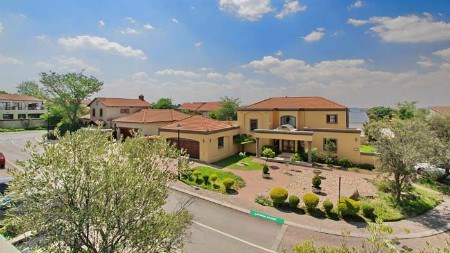|
According to property experts Lightstone, there are 1730 gated communities in South Africa, with over half of these in Gauteng. These communities contain 151 275 freehold stands. “Interestingly, the Durban area has by far the fewest gated communities of the three major metros (Johannesburg, Cape Town and Durban) indicating that the trend has not really taken off in that region,” Lightstone says. The average price for a house in a gated estate in South Africa is R1,75 million (2008 prices), up from around R1 million in 2003. Return on investment has also been significant. A property that was bought in 2003 and sold again in 2008 would have increased in value by 113% in a gated estate. Lightstone says the average age of home owner in a gated estate in South Africa is 51, although the majority of buyers are aged between 30-40 years. We looked into gated estates in Joburg, Durban and Cape Town. MOUNT EDGECOMBE, DURBAN Mount Edgecombe Estates 1 and 2 are perhaps the most popular gated communities in Durban. Set around picture-perfect golf courses, Mount Edgecombe’s 1 225 houses accommodate about 3 500 people, although some foreigners live there a few months of the year and upcountry owners only spend holidays there. The prices range from about R2,5 million for a sectional title townhouse to about R40 million for the mansions. Three houses in Mount Edgecombe under construction now are each reportedly in the R30 million league and one has a surface area of 2000sqm. Rentals for the smallest units in Mount Edgecombe start at R10 000 a month. According to Peter Hean, the manager of Mount Edgecombe Estate 1, levies range between R900 and R1500 and this covers common and individual garden maintenance, security and the administration of the estate. Hean says residents abide by the rules “because they are plain and have the common interest at heart”. “The most appealing aspect of living here is peace of mind. Residents don’t have to worry about the concerns of the outside world once they’re inside. The estates have electric fences and are patrolled 24 hours. There is full access control and CCTV cameras at strategic locations.” Hean says one resident described living on the estate as '365 days of timeshare'. “People really kick off their shoes and relax here. It’s typical of a small community where everybody knows everybody. Is that a disadvantage? I don’t know.” Julia Unger is a media consultant who has lived at Mount Edgecombe with her husband and three sons for the past five years. “I wouldn’t live outside a gated community having become accustomed to this lifestyle: knowing your children are safe and knowing at least 10 other families here.” Mount Edgecombe really is a place where children ride their bicycles down the road to visit their friends and their parents are confident they are largely safe from the perils of the outside world. “I heard that people didn’t lock their doors on the estate and I thought it was apocryphal, but it’s true. People are paying a premium to live here so there’s a huge element of trust and enormous respect. “Owners are sensitive to communal living and they abide by the rules. People have to close their garage doors; mow the lawn with shirts on; and switch loud music off at 10pm. But the rules encourage good neighbourliness. Communal living requires consciously being a good neighbour.” Unger says tenants, as opposed to owners, sometimes buck the system because they aren’t necessarily committed to the lifestyle. She says outsiders make fun of Mount Edgecombe, dubbing it “Bang Broek Palace” and “Pleasantville”, because they believe residents are paranoid about crime or want to live in houses with white picket fences. “The uniformity is about architectural language. The orderly appearance appeals to some and not to others. I suppose the upside is that you won’t have your neighbour painting his house a crazy colour.” Unger’s house is a classic Natal house with wide verandahs and sash windows. “I don’t think life is robotic. There are guidelines for good taste and rules that govern gardening, for example. You have to have a 70/30 split of indigenous and exotic plants in the garden. The indigenous plants sustain the wild buck and the birds. I have a family of Impala in my garden. “I walk about 15km three times a week on different routes through the estate and I see mongoose, monkeys and all sorts of birds. Sometimes I have to pinch myself to believe it’s real.” Unger says children have a fantastic social life, swimming at the communal pools or playing tennis, squash or golf. “The club houses are places to meet, and they are really popular with the children.” Unger says on the whole the lifestyle is relaxed and efficient. “Sometimes you feel like you’re living on a movie set. The clipped grass and manicured gardens stand out when you compare them to some areas of the Berea. It’s worth playing the premium here.” Mount Edgecombe estates are about a five-minute drive from Gateway shopping centre and a 15-minute drive to the CBD out of peak-hour traffic. STONEHAVEN, CAPE TOWN Stonehaven is an upmarket gated estate overlooking the Noordhoek Valley. Established three years ago, there are about 70 houses spread out across the olive grove estate, with another 50 or so still to be built. A young couple, who asked not to be named, sold their Noordhoek house to build their dream home at Stonehaven. They loved the location and were sold on the allure of a safer environment to raise their small children. About a year ago, they moved into their home and since the end of last year there have been seven burglaries at the estate. Thieves have apparently been sneaking in and out via weak points in the perimeter fencing. Security has been beefed up — at great cost to owners — but the burglaries have prompted some owners to install alarms. “It defeats the object of living in a security estate,” says the couple. Security guards are posted at the entrance to the estate 24/7 and roam the grounds armed with stun guns. “We’re putting it down to the usual opportunistic crime that takes place when builders are on site, but it has hit us hard in the pocket.” Security estate living doesn’t come cheap. Houses at Stonehaven sell for between R3 million and R4 million (for plots that vary in size from 600 to 1200sqm). The monthly levy is about R840, which covers the cost of security and garden staff. Building in a security estate can be more costly and stressful than usual. “Not only do you have to adhere to all building regulations, but there’s also a design guideline and you have to work through a controlling architect. There are lots of hidden costs.” And when it comes to selling your house, it needs to be signed off by a building manager employed by the homeowners’ association before you can put it on the market. Most security estates are governed by a homeowners’ association, which some people may find restrictive. Often the rules prohibit owners from installing burglar bars, which are regarded as an eyesore, as in the case of Stonehaven. The couple concedes that the homeowners’ association is there for everyone’s benefit and protection. They say that a lot depends on the trustees, who can be real sticklers. Being actively involved is important. “The pros definitely outweigh the cons. You can sleep with doors and windows open, but I’m not sure it’s wise. Security estates are great, but you also don’t want to fall into a false sense of security.” DAINFERN, JOHANNESBURG Gerald Plots is the estate manager of the homeowners’ association at one of Johannesburg’s most exclusive gated estates, Dainfern. “We’re thrilled to receive many compliments, both locally and internationally, about the way in which Dainfern runs. Estates from all over South Africa have labeled Dainfern as the benchmark in estate living.” A quick drive around Dainfern and you’ll see why many are singing its praises and digging deep into their pockets to live there. The estate is immaculately maintained, with beautiful gardens and excellent facilities. If cluster living is for you and you can look past the massive drain that runs through Dainfern, then there are countless reasons to consider this estate. Gerald says that the pros to living in Dainfern are endless. “Management really goes all out to provide an exclusive lifestyle for residents. All residents are members of the Dainfern Country Club, which not only provides an up-market clubhouse with catering, conference facilities, a large terrace overlooking the golf course and the Jukskei River, but also numerous sports.” Dainfern has two large swimming pools, two squash courts, four tennis courts, a volley ball court, skate board ramps, and an oval with a full-size soccer field. The pavilion has a hall, which is used to host parties. Besides the sports listed above, Dainfern also has dams. The estate is divided into villages with island gardens and 11 large children’s parks with jungle gyms. According to Gerald, most of the residents list security as the main reason for buying in Dainfern. “Security at Dainfern is outsourced and costs in excess of R700 000 per month with a staff of 55. The security control office also comprises state-of-the-art, fully electronic equipment. The ten kilometers of perimeter fencing and two entrance gates are monitored 24 hours a day.” There are 1 232 stands on the Dainfern Estate, most of which are occupied. Gerald says there are a number of foreigners investing in Dainfern. “Over the 15 years that Dainfern has existed it has become a real cosmopolitan estate,” says Gerald. So how much can one expect to fork out for a spot at Dainfern? The average home sells for between R3 million and R6 million. “Dainfern has various styles and sizes of houses. The smallest house (170sqm) will go for approximately R1,8 million and the largest (1200sqm) will set you back about R15 million. Generally, stands are between 200 and 1150sqm.” |
News



